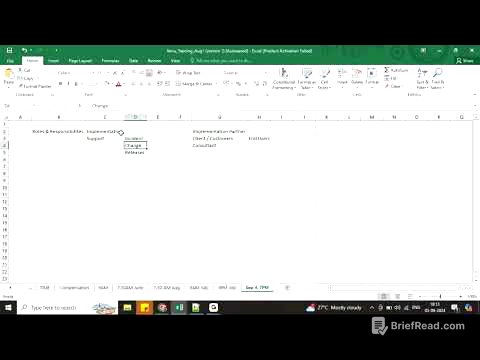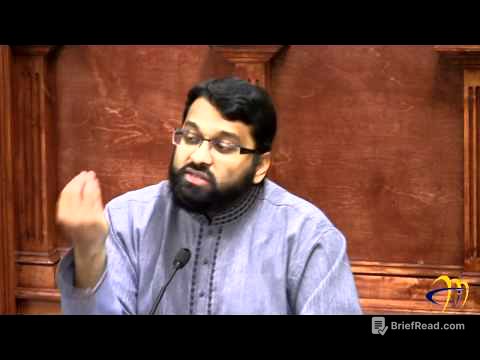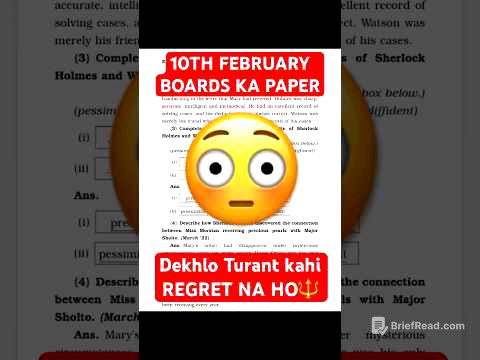TLDR;
This workshop, led by Carrie Foster, ABE's chief examiner for the HR suite, aims to provide students and centres with additional insights on improving assignment grades, focusing on key elements that academic teams consider during marking. The session covers essential aspects such as understanding command words, academic writing skills, effective evidence gathering, and avoiding academic malpractice.
- Organisational summary is a must, otherwise fail.
- Word count is important, don't go over it.
- Command words are important.
- Academic writing is a skill.
Introduction [0:00]
Vicki Mose, Director of Global Products and Services at ABE, introduces the workshop on writing great assignments and open book answers. The workshop addresses feedback from centres and students seeking guidance on achieving higher grades. Carrie Foster, ABE's chief examiner for the HR suite, will lead the session, sharing insights on how to improve assignment performance. The session is being recorded and live-streamed, with slides available afterwards.
Getting the Basics Right [4:24]
Carrie highlights common mistakes that prevent students from passing, despite their hard work. Key requirements include always providing an organisational summary, sticking to the word count, allocating word count based on mark value, reading the question carefully, and applying knowledge to the organisational context. Theory dumps should be avoided, and theorists should be mentioned when using their theories.
Keywords: Understanding Command Words [27:31]
Carrie explains the importance of understanding command words in assignment questions. Using COVID-19 as an example, she demonstrates how different command words such as analyse, compare, describe, discuss, explain, evaluate, and critically evaluate require different approaches and information in the answer. The command word dictates the structure and content needed to score well.
Academic Writing: It Is a Skill [41:02]
Carrie describes academic writing as a learnable skill, outlining a structure similar to a news report: headline, supporting evidence, critique, counter critique, and summary. Each element contributes to a well-rounded argument, with marks awarded for each component. This approach enables students to score highly with succinct and well-structured paragraphs.
How to Increase Your Grade Level [55:55]
Carrie explains how to progress from a failing grade to a pass, merit, and ultimately a distinction. The key differences lie in the depth of analysis, the quality of evidence, and the originality of thought. Higher grades require evaluative approaches, critical thinking, and the ability to apply knowledge in unique and insightful ways.
Gathering Evidence: Exploring All Sides of the Answer [1:09:14]
Carrie discusses where to find credible sources for assignments, distinguishing between reliable sources (ABE study guides, journals, industry magazines, published reports, textbooks) and unreliable sources (Wikipedia, Facebook, outdated materials). She advises on how to read journal articles effectively and stresses the importance of synthesising information rather than merely quoting it. Sentence structures are provided to help integrate evidence and critique effectively.
Avoiding Academic Malpractice [1:29:46]
Carrie addresses academic malpractice, including plagiarism, collusion, and poor academic practice. She emphasises the importance of citing sources, avoiding copying, and not colluding with others. Proper citation and referencing are essential to avoid plagiarism and demonstrate academic integrity, contributing to the wider academic community.
Summary [1:48:23]
Carrie summarises the top tips for writing great assignments and open book answers: answer the question, respond to the command word, keep to the point, stick to the word limit, ensure quality references, synthesise material, make a clear academic argument, and always apply the content to your organisation. Following these guidelines will lead to higher marks and academic success.









